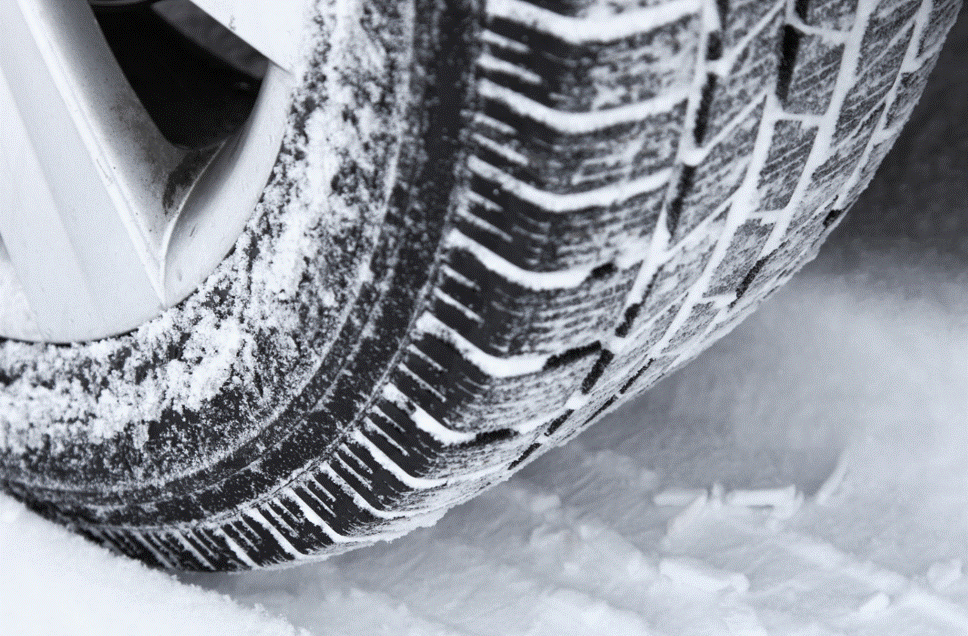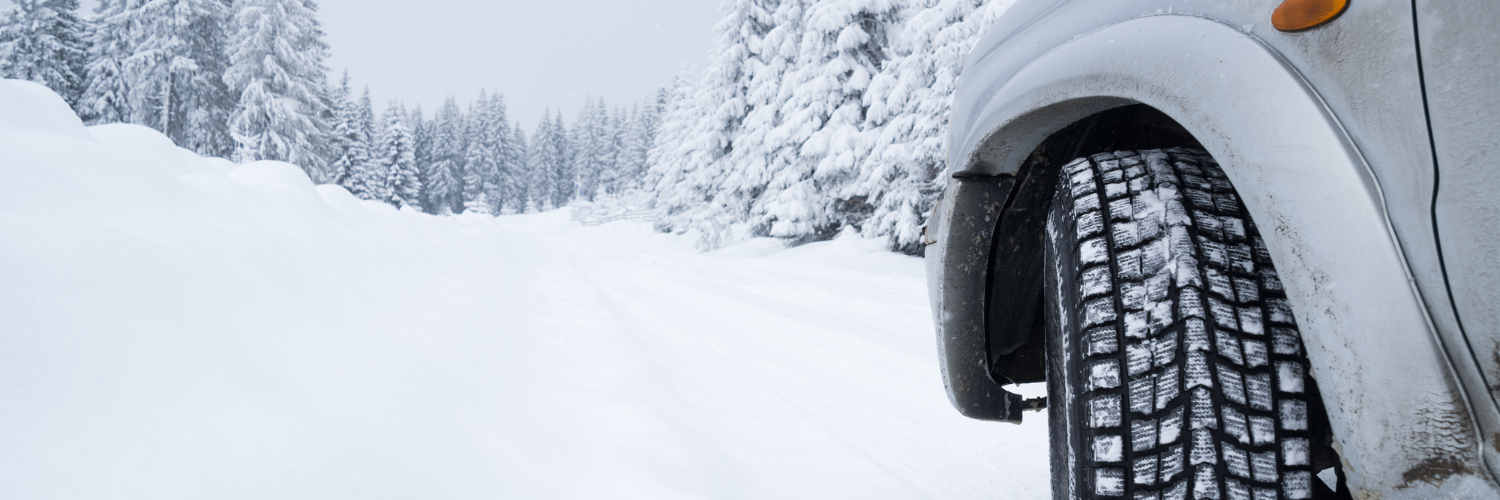Are Winter Tires Worth It?
January 24, 2022

Are Winter Tires Worth It?
Snow and winter are synonymous with some of the most beautiful and dramatic weather in the world. When the temperatures drop and the snow begins to fall, most of us are happy to hibernate indoors and escape the harsh winter weather. However, for those who must brave the elements, it is always best to be cautious and take every precaution possible.
After all, the last thing you want is to skid on an icy road and get into an accident while driving your friends or family around. Aside from careful driving, having a good set of tires will ensure your safety and peace of mind. So, the question is, will winter tires suffice? Stick around to know whether you need them or not.
What Exactly Are Winter Tires?
To comprehend the significance and necessity of winter tires, it is necessary to first understand what they are and how they differ from all-season and summer tires.
The roads in Canada are often icy in the winter, and even on clear days, the roads are usually wet and slippery. During this time, summer tires aren’t of much use since they can’t provide sufficient grip to keep you safe on the road. And that’s where winter tires come in.
Winter tires are designed to provide a better grip in snow, keep you moving ahead on icy roads, and keep you safe in inclement weather. They are required for driving in the winter months in many parts of the country.
The features of winter tires are what make them so valuable and different. Winter tires, are intended to improve traction in the snow and ice rather than on the road surface. This is accomplished through the use of special compounds and tread designs that are optimized for snow, ice, and wet roads.
All-season and summer tires are made for warmer weather, and as the temperature drops, their rubber compounds harden and lose grip. The rubber compound in winter tires is designed to stay flexible when the temperature drops. They are also filled with thicker tread blocks that have more sipes—the little cuts in a tire that help you grip when it’s wet.
How do you Identify a winter tire?
So what should you look for when buying winter tires?
- A mountain snowflake symbol on the sidewall. This indicates that a tire has met the industry’s severe snow traction performance requirements and is approved for use in inclement weather.
- V-shaped grooves run the length of each tread block.
- Finally, don’t forget about tread depth. You want at least 4/32 inches (2mm).
What Are the Benefits of Winter Tires?
Winter tires do more than just provide better traction in the snow, according to tests conducted by Canada’s Traffic Injury Research Foundation.
When compared to all-season tires, winter tires provide superior traction, braking, and cornering in all cold weather driving conditions. Braking distance is approximately 30% shorter in a vehicle equipped with winter tires than in one equipped with all-season tires.
The secondary benefit of having winter tires is hydroplaning resistance. Because they are designed to work best at low temperatures, they also tend to be more effective than standard all-season models at preventing hydroplaning on wet pavement.
What is the Cost of Winter Tires?
Generally, a good set of winter tires can cost anywhere from $600 to over $1,000, depending on your wheel size and tire brand. If you get a new set of wheels for them, the price will, of course, be higher, but on the other hand, you’ll have saved on future tire changeover costs. Mounting the tires on existing wheels saves you money on new wheels, but you must have them swapped out every spring and fall—at a cost.
Winter tires can be more expensive than all-season tires. But keep in mind that you are getting a lot for your money. When you factor in the shorter stopping distances, better-handling response, and safety, it’s easy to see how winter tires could prevent an “at-fault” accident.
There are numerous winter tire models on the market, so when looking for a new set of winter tires for your vehicle, seek expert advice from a tire professional. Get winter tires that are appropriate for your vehicle, climate, and driving habits, as well as your budget.
How Long Do Winter Tires Last?
The life of winter tires is influenced by factors other than temperature and weather. Driving habits, climate, road conditions, and vehicle type all factor into a winter tire’s longevity. While we cannot predict how long your winter tires will last, here are some general guidelines.
If you drive regularly in snowy conditions year-round, you can expect up to 4 seasons of use out of your snow tires. Even if you don’t need winter tires every year, storing them properly between uses will ensure they last longer.
A quality set of steel rims with a corrosion-resistant finish like chrome plating or galvanization can extend tire life significantly because rust causes damage to tires and reduces traction. Rust won’t actually eat through your wheels until several layers deep; however, salt damage occurs quickly, as it eats away at thin metal almost immediately after contact.
As you can see, there are a lot of variables that affect how long your winter tires will last. With proper care and storage, though, it is possible to get 6+ winters out of them before needing new ones. You should also rotate your winter tires every 5,000 miles to ensure even wear.
Always store your winter tires indoors in a cool, dry place, covered by something breathable like cloth or burlap (to prevent moisture buildup), and maintain proper air pressure throughout each season.
We recommend checking them regularly during the winter months. Since cold temperatures cause the air pressure inside tires to drop faster than usual, you’ll want to keep an eye on them throughout the winter.

So, Are Winter Tires Worth an Investment?
Yes, they are definitely worth it if you live in a province that requires vehicle owners to have winter tires by law. You not only stay safe in the winter, but you also avoid being fined for driving on summer tires during certain months of the year or on certain terrains.
Winter tires may be necessary for areas where snow and ice are common hazards, such as Vancouver, but even then the area has experienced a lot of snow in recent years.
Winter tires not only keep your vehicle from sliding off the road or from being unable to stop, but they can also keep you from becoming stuck on snow-covered roads.
For those who live in areas with mild winters, all-weather tires can do the job as well. They won’t give you as much traction as winter tires will, but they will outperform summer and all-season tires on wet surfaces. Plus, they last longer than winter tires because they aren’t made with such soft rubber compounds.
Ultimately, snow or winter tires can make a big difference in your safety when driving on icy, snow-packed roads. The only way to know if they are worth it is to try them for yourself. It is an investment, but it is most likely worthwhile.




